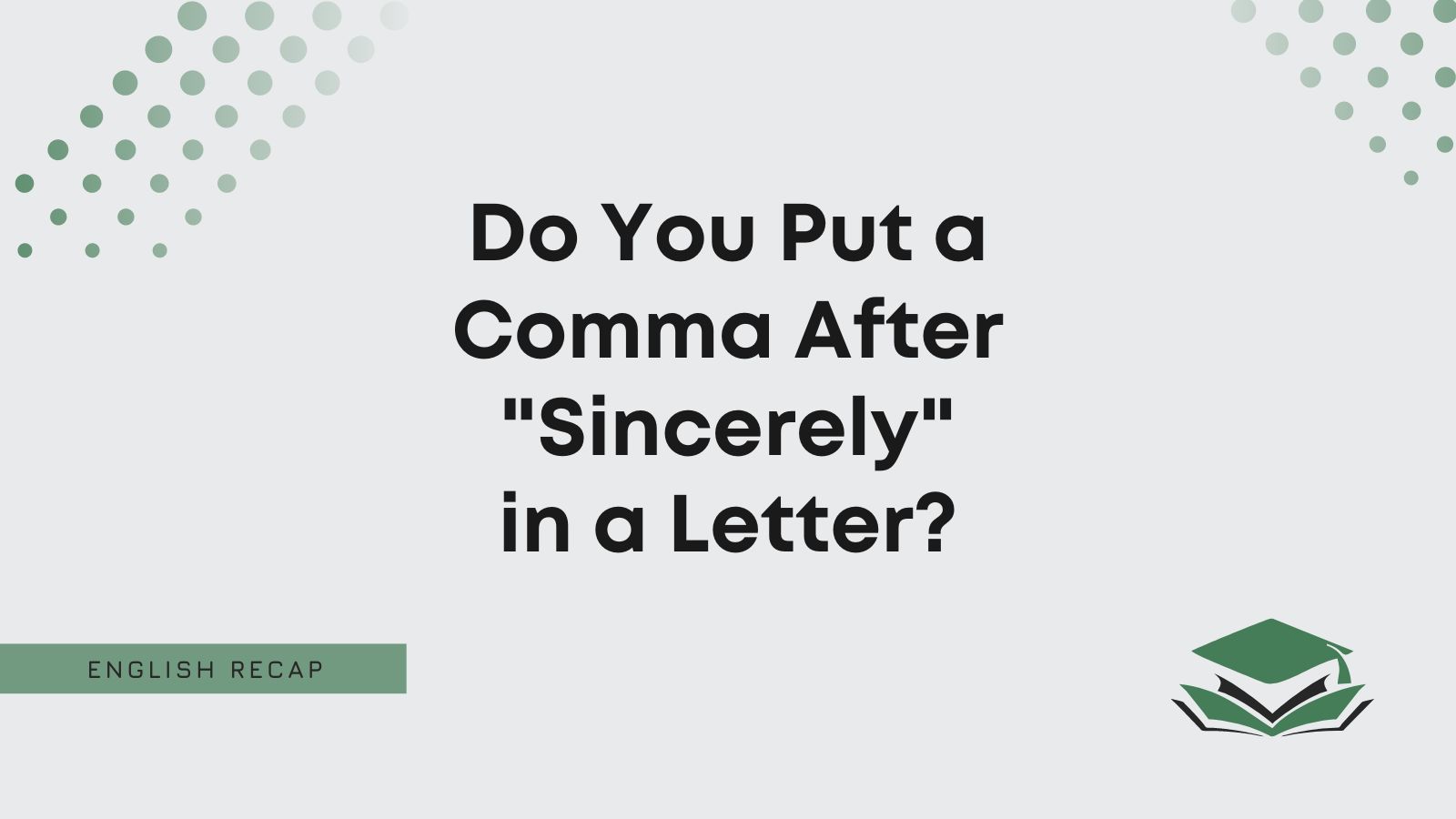Rule 1: If you end a letter with “sincerely” followed by a name or signature, you should put a comma.
- Correct:
- Yours sincerely,
- David
- Incorrect:
- Yours sincerely
- David
Rule 2: Do not put a comma when you use “sincerely” as a regular adverb in the middle of a sentence.
- Correct: He spoke very sincerely about the challenge ahead.
- Incorrect: He spoke very sincerely, about the challenge ahead.
Are you still in doubt about the rules or do you want to see some more examples?
Then continue reading the rest of the article to learn more about commas and how you can use them with letter salutations.
We’ll provide some helpful example sentences that will clear out any of your doubts.
When to Use a Comma After “Sincerely”
In this section, we’ll explain more about how you can use “sincerely” in a letter.
Rule 1: Use a comma after “sincerely” when you use it before the signature at the end of a letter or email.
- Sincerely,
- James
Here’s an email example using “sincerely” as a valediction:
Dear Mr. Thompson,
I hope this email finds you well.
I’m reaching out to discuss the upcoming marketing project. Given its importance to both our teams, I believe it would be beneficial for us to meet and go over the key deliverables and timelines.
Would you be available for a meeting next Tuesday at 2 p.m.?
Sincerely,
Jane Williams
The term” sincerely” is a common way to end an email or letter.
However, it is more common in British English than American. Also, people often add the word “yours” before “sincerely” to emphasize it.
Here’s an email example using “yours sincerely” as the valediction:
Dear Mrs. Patel,
Due to unforeseen circumstances, I’m unable to attend our scheduled meeting tomorrow. Can we consider rescheduling for Wednesday at 2 p.m.?
Yours sincerely,
Robert Langley
Furthermore, in British English, there is a long-standing rule related to using “sincerely.”
The rule states that if you do not know the person you are writing to or did not address them by name, you should not use “sincerely.”
Therefore, if you start a letter or email with “Dear Sir/Madam,” you should not use the word “sincerely” to end the correspondence.
Instead, you could use an alternative salutation such as:
- Yours faithfully
- Kind regards
You should always make sure to keep your emails varied. That’s why is a good idea to have some alternatives like the ones above at hand.
Now, let’s turn to discuss when you shouldn’t use a comma after “sincerely.”
When Avoid a Comma After “Sincerely”
If you are not using “sincerely” at the end of an email or letter, you should refer to Rule 2 to learn how to punctuate the word.
Rule 2: Do not use a comma after “sincerely” when you use it as a regular adverb.
Here are some example sentences where “sincerely” is used as a regular adverb and no comma is needed:
- She delivered her speech sincerely and with a determined tone.
- They sincerely believed in the cause they were supporting.
- I hope you know I sincerely regret my mistakes.
- She listened sincerely to his concerns without interrupting.
- I want to sincerely apologize for the confusion.
- The manager sincerely hoped the team would improve.
The exception is when “sincerely” is the final word in a clause. In these cases, you need to put a comma.
Here are some example sentences where this is the case:
- He did not speak sincerely, nor did he sound very determined.
- She praised the effort, not just politely, but genuinely sincerely, which meant a lot to the team.
- The feedback was not only constructive but also delivered sincerely, making it easier to accept.
- They didn’t just nod in agreement, they expressed their support sincerely, highlighting their commitment.
- We didn’t just want a perfunctory response, we sought feedback that was both candid and given sincerely, to help us grow.
- It wasn’t enough for him to simply apologize; he had to convey his regret sincerely, so she would understand his remorse.
So, that’s all there is to know about commas with “sincerely.”
Lastly, we want to share a short conclusion with you to tie up any loose ends.
Conclusion
Put a comma after “sincerely” when it comes at the end of a letter, and a name or signature follows it. However, if you write to a person you do not know and start with “Sir,” you should not use “sincerely.” Furthermore, do not use a comma when “sincerely” is a regular adverb.

